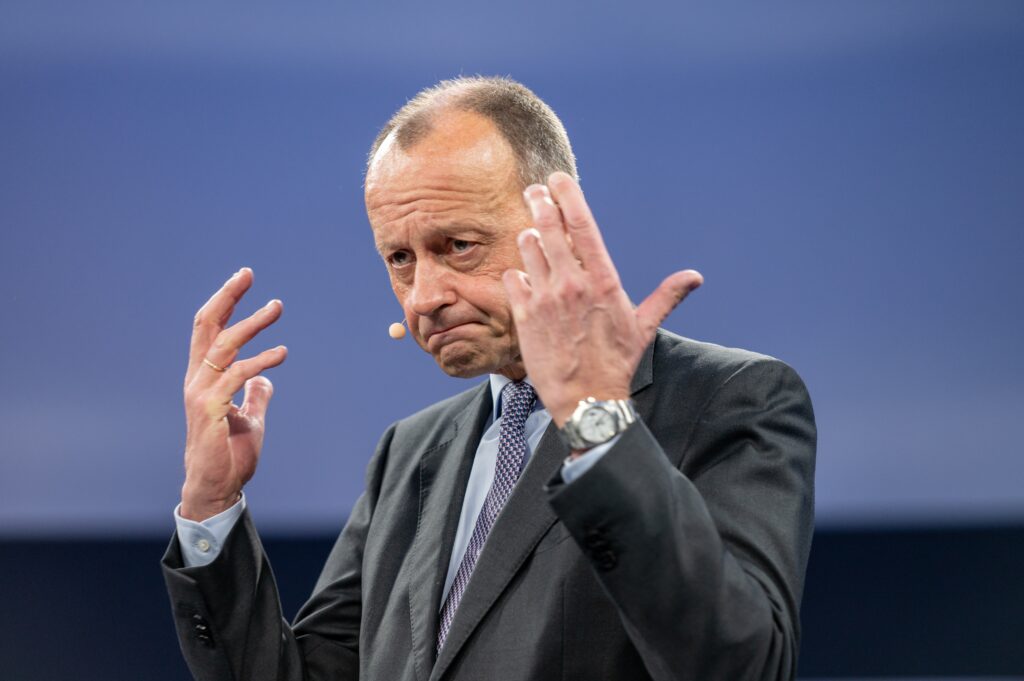Friedrich Merz, leader of Germany’s Christian Democratic Union (CDU), has proposed a €500 billion special fund aimed at strengthening the country’s military and infrastructure. The initiative, supported by the CDU/CSU alliance and likely coalition partner SPD, seeks to ease Germany’s strict debt rules in order to facilitate higher defence spending. The plan comes as part of broader efforts to bolster national security amidst rising global tensions.
Proposal for Increased Defence Spending
At a press conference in Berlin, Merz highlighted the urgent need for enhanced defence capabilities in light of increasing global instability. “We must take decisive action to protect our freedom and peace,” Merz said, standing alongside leaders from the SPD and the Christian Social Union (CSU). “This level of defence spending is only feasible if we invest heavily in infrastructure and ensure economic stability.”
The proposed funding would go towards military enhancements as well as infrastructure projects, such as schools, daycare centers, and public services. The initiative marks a significant shift in Germany’s fiscal approach, aiming to address both national security needs and long-term economic stability.
Constitutional Amendment to Facilitate Defence Funding
The plan to relax Germany’s debt rules requires a two-thirds majority in the Bundestag, necessitating approval from the Green party. The proposed change would allow the government to bypass the debt brake, a constitutional rule introduced in 2009 that limits Germany’s structural deficits to 0.35% of GDP. If approved, this amendment would represent a sharp break from Germany’s long-standing commitment to strict fiscal discipline.
While Merz did not campaign on relaxing the debt brake, he now argues that the move is essential due to rising global tensions. This includes the ongoing geopolitical issues surrounding the dispute between U.S. President Donald Trump and Ukrainian President Volodymyr Zelenskyy, which has underscored the need for stronger European defence.
“Germany and Europe need to strengthen their defence forces rapidly,” Merz declared. “The CDU, CSU, and SPD will propose an amendment to the Basic Law, allowing defence spending above 1% of GDP to bypass the debt brake.”
Broader Investment in Public Services
SPD leader Lars Klingbeil emphasized that the proposed investments are not limited to the military. “We are also committing to significant funding for schools, daycare centres, and public infrastructure,” he said. This broader approach aims to address a wide range of pressing needs within Germany’s public sector, ensuring that infrastructure improvements accompany military enhancements.
The investment in public services is part of the plan to maintain Germany’s economic stability while simultaneously strengthening its national security. The proposal also underscores the ongoing need for comprehensive solutions that extend beyond just defence.
Political Backlash and Criticism
The proposal has faced criticism, particularly from the Green party, which has expressed frustration over the lack of prior consultation. Katharina Dröge, the Greens’ parliamentary leader, criticized Merz for unveiling the plan without engaging her party earlier. She suggested that early discussions might have facilitated the votes needed to pass the initiative.
Merz has also faced scrutiny for not including such fiscal changes in his election campaign. Robin Alexander, deputy editor-in-chief of WELT, remarked, “Defence is now largely exempt from the debt brake, alongside €500 billion for infrastructure projects—this is a major shift. Yet, it resembles policies proposed by Scholz and Habeck more than those Merz campaigned on.”
Similarly, journalist Markus Feldenkirchen from Der Spiegel noted that while the CDU/CSU and SPD’s financial agreement appears responsible, Merz’s campaign promises presented a very different vision. “This shift in fiscal policy raises questions about transparency and voter expectations,” Feldenkirchen stated.
Future Prospects and National Security
As the debate over defence spending and fiscal policy continues, it remains to be seen how the proposed changes will be received by the broader German political landscape. The Green party’s position on the debt brake amendment and the level of support from other coalition members will likely determine the fate of the plan.
Merz’s proposal reflects growing concerns about Europe’s security, as global conflicts intensify and traditional alliances are tested. If passed, the plan could significantly reshape Germany’s fiscal future, balancing increased defence and infrastructure investment with the country’s historically cautious approach to debt.
For more updates on Germany’s fiscal policy and defence strategy, visit Financial Mirror.
